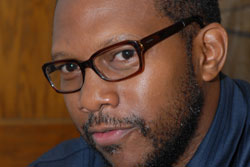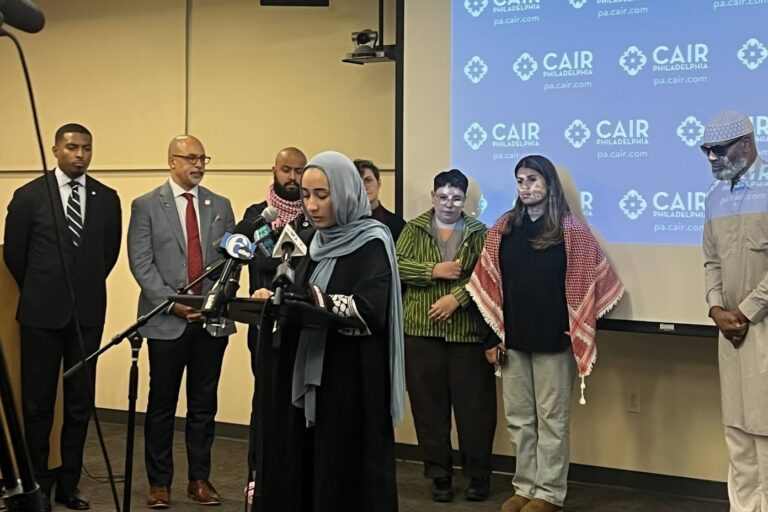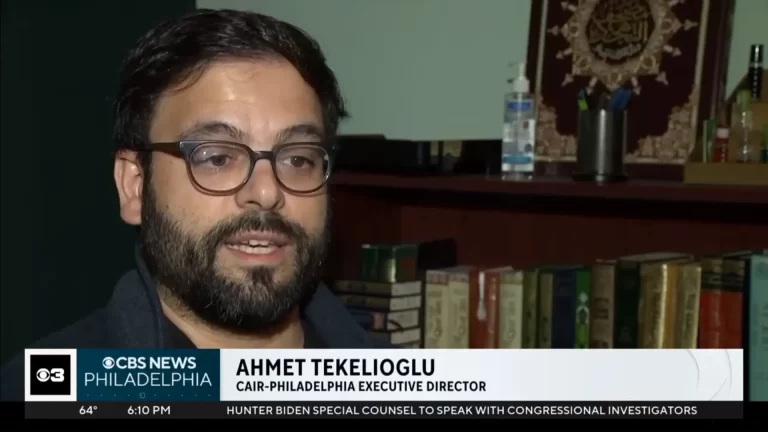![]()
by Stephanie Guerilus
The Philadelphia Tribune, September 3, 2009
“Tell Me About Islam” was a special lecture for all faith traditions held on Aug. 27 at The Philadelphia Central Library. It was organized to help dispel myths and in observance of Ramadan.
The Philadelphia Pennsylvania chapter of the Council of American Islamic Relations (CAIR) sponsored the event, which included two copies of the Holy Qu’ran being presented for the research section. Q. Amin Nathari, CAIR-PA executive director, presided over the occasion and Q&A.
He spoke to the audience of more than 50 and shared the importance of why it was critical to be proactive to the interested crowd.

“What it was, it was basically part of an ongoing series that we’re going to do hopefully, at branch libraries throughout the city; getting people to have a broader understanding of Islam because I think it’s so important now in the age that we live in to try and promote tolerance between faith and just in society in general,” Nathari said.
“It’s just important that we understand each other and I feel some sense of responsibility in making sure that at least from an Islamic perspective, that we make the information available so folk don’t have to rely on what they necessarily see on TV and the Internet.”
The author and one of the founders of the New Jersey Mosque and Community Center explained
how this was the first presentation of its kind in the Philadelphia libraries. The continued effort is part of a larger mission to help erode misconceptions. One of them is the notion that practicing Muslims are violent.
“These are things that are the outgrowth of political realities that happen in any particular countries and that Islam in no way condones any violence without just cause, being discriminated, murder of women and children and people blowing up buildings.
“But because again, these are the things that are mostly seen in the media become intricately linked with Islam.”
Nathari believes that progress has been made since the Sept. 11 attacks. However, he said there was still much work to be done.
“That tragic moment created an opportunity to raise awareness and to present correct information. We’ve been making a lot of progress, but I think some more work could be done to make it institutional where people can get information,” he said.
“I think that as we move forward, especially in light of, you know, where we are in America, the presidency of President Obama, that people are just going to have to be more receptive to new things, new ideas and the whole moving away from a singular focused society.”
Ultimately, he hoped that his lectures and the ones that are to follow would help to raise greater awareness on the faith. He wanted a better representation of the religion and not just a one-sided
view.
“I hope that what they went away from the program is that Islam is a good positive way of life that is practiced by people who are imperfect people and you’re going to find that in any religion” he said.
“And because people may do things and attribute them to Islam doesn’t or shouldn’t put a damper or a negative mark on the religion itself because for every one report you hear about somebody involved in something negative that’s Muslim, we can give you 50 instances where Muslims are making valuable contributions to American life. But again, those things don’t normally get reported or get the coverage that negative things get.”





